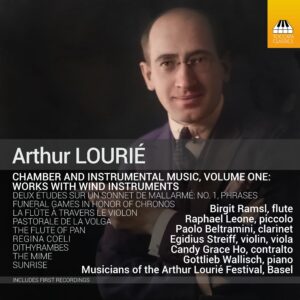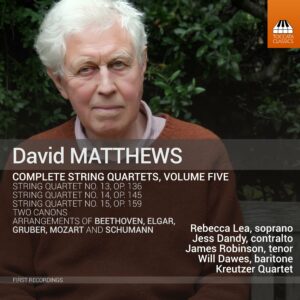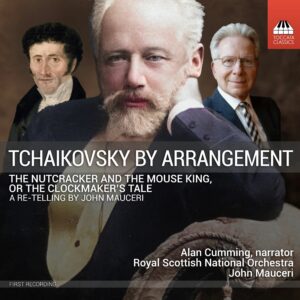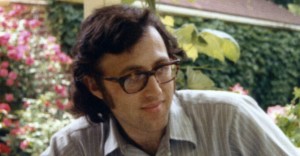Search Results for "maggie y andy"
Arthur Lourié: Chamber and Instrumental music, Volume One: Works with Wind Instruments
The turbulent life of Arthur Lourié (1891–1966) – student of Glazunov, friend of Blok, lover of Akhmatova, commissar of the Soviet regime, an exile in Germany, France and the USA, ghost-writer for Koussevitzky – is reflected in the wide range of references in his music, from echoes of the ceremonies of ancient Greece to Neo-Baroque and Neo-Classical procedures perhaps inspired by his collaboration with Stravinsky in Paris. Some of the works in this first of two albums surveying his chamber and instrumental music have an almost ritual formality; in others a mischievous grin is not far from the surface.
Birgit Ramsl (flute)
Raphael Leone (piccolo)
Paolo Beltramini (clarinet)
Candy Grace Ho (contralto)
Gottlieb Wallisch (piano)
Egidius Streiff (viola, violin);
Musicians of the Arthur Lourié Festival, Basel:
Lucie Brotbek Prochásková (alto flute)
Hansjürgen Wäldele (oboe)
Nicolas Rihs (bassoon)
Simon Lilly (trumpet)
Nicolas Suter (percussion)
Agnès Mauri (viola)
Mateusz Paweł Kamiński (cello)
David Matthews: Complete String Quartets, Volume Five
The American critic Robert Reilly described the music on Volume One of this cycle of the complete string quartets of David Matthews (b. 1943) as ‘some of the most concentrated, penetrating writing for this medium in the past 30 years or more. It is musical thinking of the highest order and quartet writing in the great tradition of Beethoven, Bartók, Britten, and Tippett’. Matthews’ three most recent quartets call in a wide range of references. Birdsong – heard in Nos. 13 and 14 – is a standard Matthews topos; and the fugal No. 15 seems to find a middle ground between late Beethoven and folk-music. No. 13 presents the biggest surprise: it introduces four solo voices, siting the work somewhere between Berg’s Lyric Suite and Vaughan Williams’ Serenade to Music. Some touching arrangements and two canons for two Michaels – Tippett and Berkeley – complete the programme.
Rebecca Lea, soprano 8
Jess Dandy, contralto 8
James Robinson, tenor 8
Will Dawes, baritone 8
Kreutzer Quartet
Peter Sheppard Skærved and Mihailo Trandafilovski, violins
Clifton Harrison, viola
Neil Heyde, cello
Tchaikovsky by Arrangement: The Nutcracker and the Mouse King or The Clockmaker’s Tale: A Re-telling by John Mauceri
Tchaikovsky’s ballet The Nutcracker, which has its origins in a novella by E. T. A. Hoffmann, contains some of the best-loved music ever written. But its composer wasn’t very happy with it, perhaps because the plot he was given to work with allowed him to present only a series of dances, losing the moral basis of Hoffman’s surprisingly modern tale, with its messages of inclusivity and what is now called ‘women’s agency’ – here it is the little girl who saves the prince. Hoffmann’s aspirational story continues well after the ballet ends, with the little girl, now grown up, marrying the prince, who is now king. John Mauceri has brought the ballet back to its inspiration, calling on music from elsewhere in Tchaikovsky’s orchestral output to fashion this ‘re-telling’, marrying Hoffmann’s text and Tchaikovsky’s music for the first time.
This is very much a Scottish product, by the way, even leaving aside Toccata’s Scottish origins: the orchestra is the Royal Scottish National Orchestra, John Mauceri spent seven years as music director of Scottish Opera in Glasgow, and the narrator is Alan Cumming, now a NY-based gay icon but born in Aberfeldy and brought up in Carnoustie.
Alan Cumming, narrator
Royal Scottish National Orchestra
John Mauceri, conductor
Hans Gál In Conversation
This conversation, first published in the Journal of the British Music Society (Vol. 9, 1987, pp. 33–44), was recorded at Dr Gál’s Edinburgh home in…
Svetik, My Hair and I
My contribution to Svetik – the opening section, ‘Three Sisters’ – deals with Sviatoslav Richter’s relationship to his mother and her sister (Dagmar von Reincke,…
Stay In the Know
JOIN THE TOCCATA NEWSLETTER
"*" indicates required fields
By visiting our site, you agree to our privacy policy regarding cookies, tracking statistics, etc.




